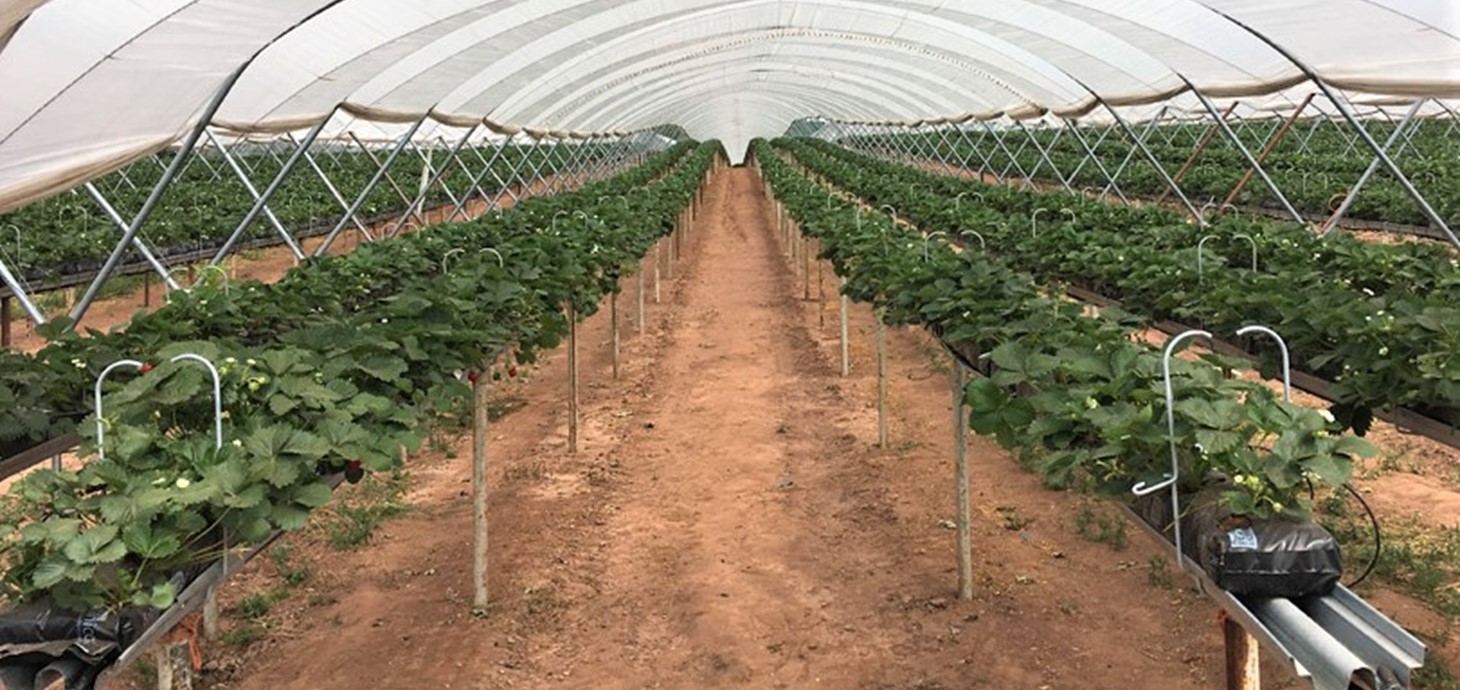
Plants in a greenhouse: the BioHUB would develop greener and more sustainable alternatives to products such as pesticides.
The Swansea region could become a centre for natural products – from biopesticides to natural alternatives in cosmetics and pharmaceuticals – as funding has just been confirmed for a feasibility study into setting up a new hub to support research and businesses in this fast-growing sector.
The BioHUB would provide access to cutting-edge natural product research and innovation facilities, as well as support for new businesses and training for local communities.
Swansea University, in partnership with Swansea Council, has secured UK Government Community Renewal Funding to assess whether the proposal is feasible.
The BioHUB would be a unique multi-use facility to support a growing natural product sector. It would combine expertise from academia, industry and business, exploring novel environmentally friendly products and solutions
As well as supporting business growth in the natural product sector, it would also bring environmental and health benefits, by developing greener and more sustainable alternatives to pharmaceutical and agricultural products.
Professor Dan Eastwood, Programme Lead, Swansea University Department of BioSciences, explains the background and the potential benefits of the BioHUB:
“Natural products contribute significantly to our quality of life. Their unique value is attributed to millions of years of evolution. However, only a tiny fraction of the vast reservoir of these bioactive compounds, from readily accessible plants, animals and micro-organisms have been utilised.
The use of natural products, particularly in pharmaceuticals, agriculture, food, and cosmetics is growing. The increased demand is driven by several factors such as: the development of resistance to chemicals, the harmful impact on human and animal health and negative impact on biodiversity and groundwater pollution, as well as legislative restrictions on the use of chemicals.
Swansea and surrounding regions have a diverse natural habitat, ranging from the coast to mountains, providing a huge potential for accessing these natural resources and addressing the need for their wider use. This will not only benefit the environment and community but also create new jobs and business opportunities”.
BioHUB Project Manager Dr Farooq Shah said
“The BioHUB will allow business and industry partners to collaborate, access specialist laboratories, equipment and academic expertise, to nurture opportunities to trial new approaches and innovative ideas at a local level and maximise the potential from natural resources.
This flexible approach will lower the risk and cost for start-up and spin-out businesses and further strengthen the University’s long-established business and industry partnerships, as well as foster new collaborations to uplift the community through income and job creation, boosting the region’s Green Economy”.
The initiative is part of a wider Swansea Business Support and Green Recovery Project.
Cllr Robert Francis-Davies, Swansea Council’s Cabinet Member for Investment, Regeneration and Tourism, said:
“We’re delighted to be working in partnership with Swansea University on this scheme.
“The Natural Products BioHUB will contribute to the growing green infrastructure sector by supporting new and existing businesses to develop plants and microbe-based natural products. This will create more jobs and opportunities for our local community within the green business sector.”
Cllr Andrea Lewis, Swansea Council’s Deputy Leader and Cabinet Member for Service Transformation, said:
"The council is focused on creating a green and sustainable future for Swansea, with an ambition to achieve a NetZero city by 2050 at the heart of this transformation. Developing an emerging green infrastructure is key to achieving this.
This project will also help to increase the amount of biodiversity within our region and help to combat climate change.”
The BioHUB will also bring direct benefits to the local community. It would be a focus for community events and training and a place for people to engage with University research, such as the work of Professor Tariq Butt and his research team, within the Biocontrol and Natural Products (BANP) group.
Professor Tariq Butt of Swansea University said:
“The opportunity to engage with the community and demonstrate the impact of research into the potential of organisms, particularly fungi and microalgae, to provide biomass and novel compounds, including chemical feedstocks, therapeutics and nutraceuticals and act as agents for biocontrol and bioremediation, will promote a wider understanding of the benefits and potential of natural products to support a greener, more sustainable future”.
